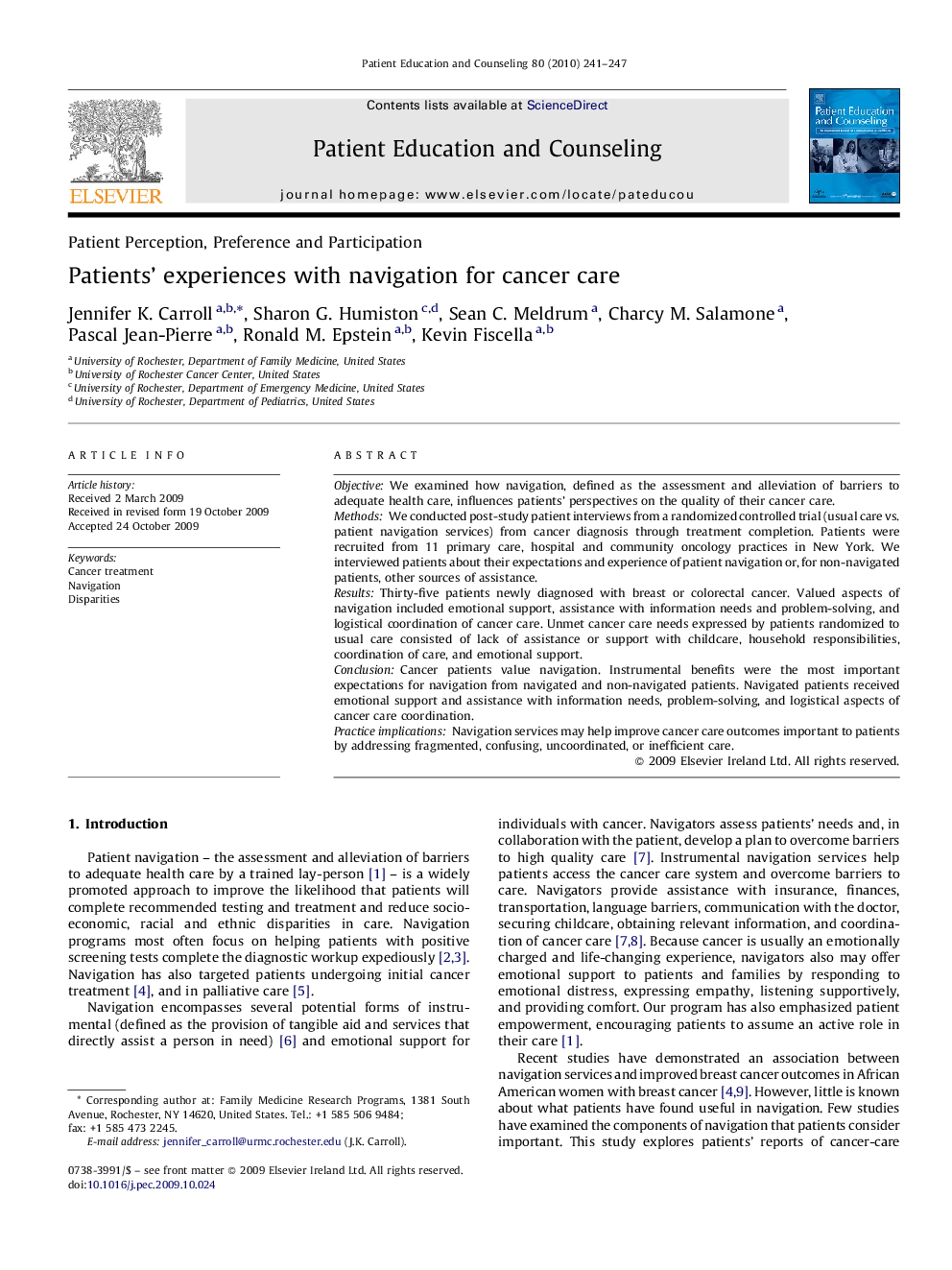| Article ID | Journal | Published Year | Pages | File Type |
|---|---|---|---|---|
| 3815489 | Patient Education and Counseling | 2010 | 7 Pages |
ObjectiveWe examined how navigation, defined as the assessment and alleviation of barriers to adequate health care, influences patients’ perspectives on the quality of their cancer care.MethodsWe conducted post-study patient interviews from a randomized controlled trial (usual care vs. patient navigation services) from cancer diagnosis through treatment completion. Patients were recruited from 11 primary care, hospital and community oncology practices in New York. We interviewed patients about their expectations and experience of patient navigation or, for non-navigated patients, other sources of assistance.ResultsThirty-five patients newly diagnosed with breast or colorectal cancer. Valued aspects of navigation included emotional support, assistance with information needs and problem-solving, and logistical coordination of cancer care. Unmet cancer care needs expressed by patients randomized to usual care consisted of lack of assistance or support with childcare, household responsibilities, coordination of care, and emotional support.ConclusionCancer patients value navigation. Instrumental benefits were the most important expectations for navigation from navigated and non-navigated patients. Navigated patients received emotional support and assistance with information needs, problem-solving, and logistical aspects of cancer care coordination.Practice implicationsNavigation services may help improve cancer care outcomes important to patients by addressing fragmented, confusing, uncoordinated, or inefficient care.
